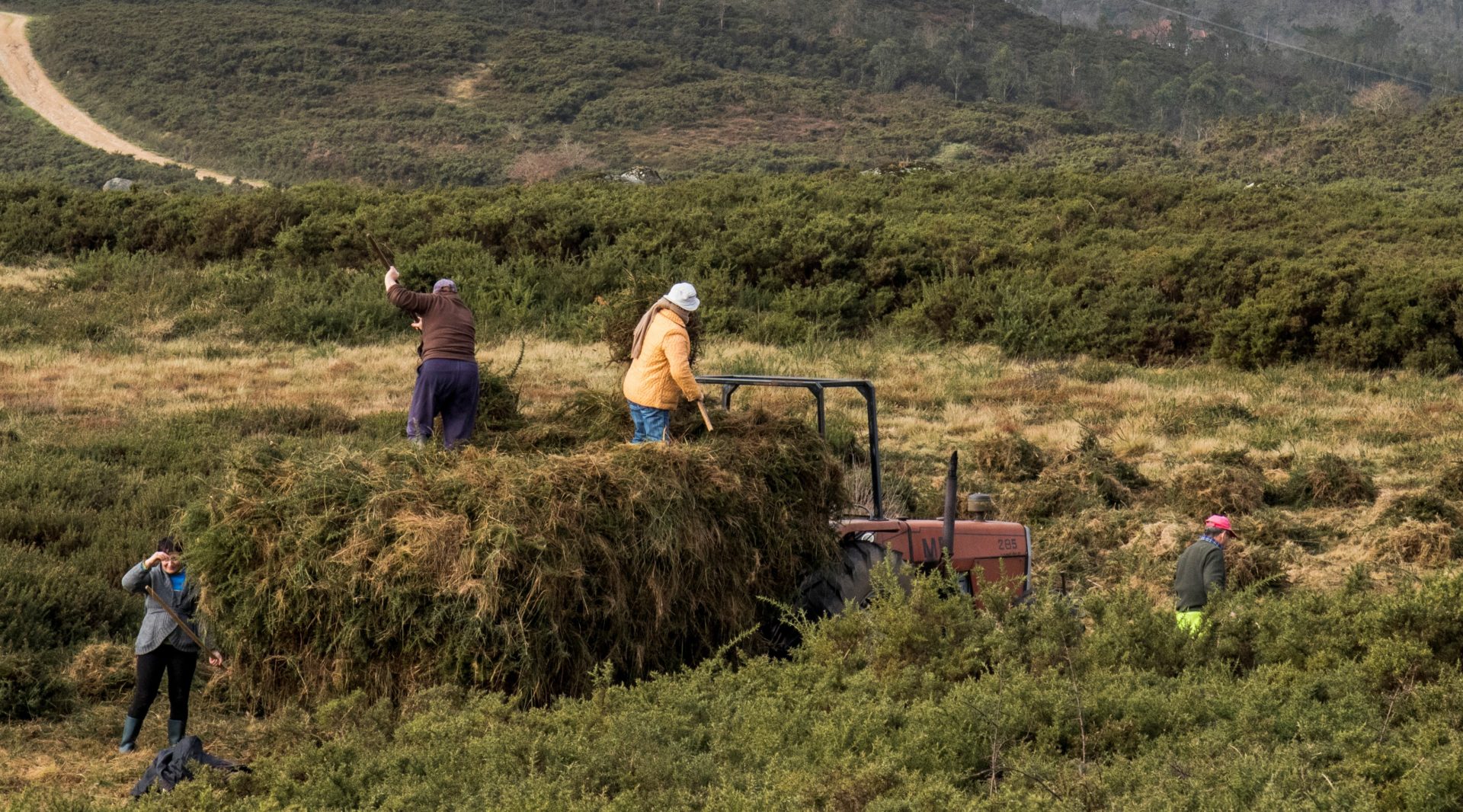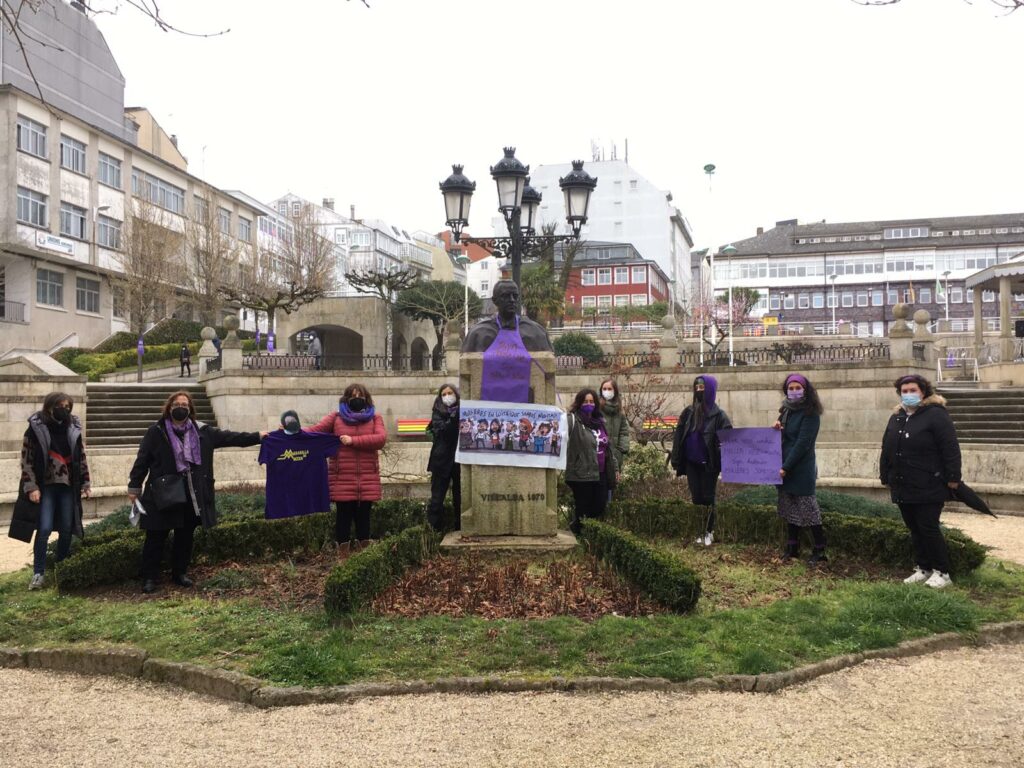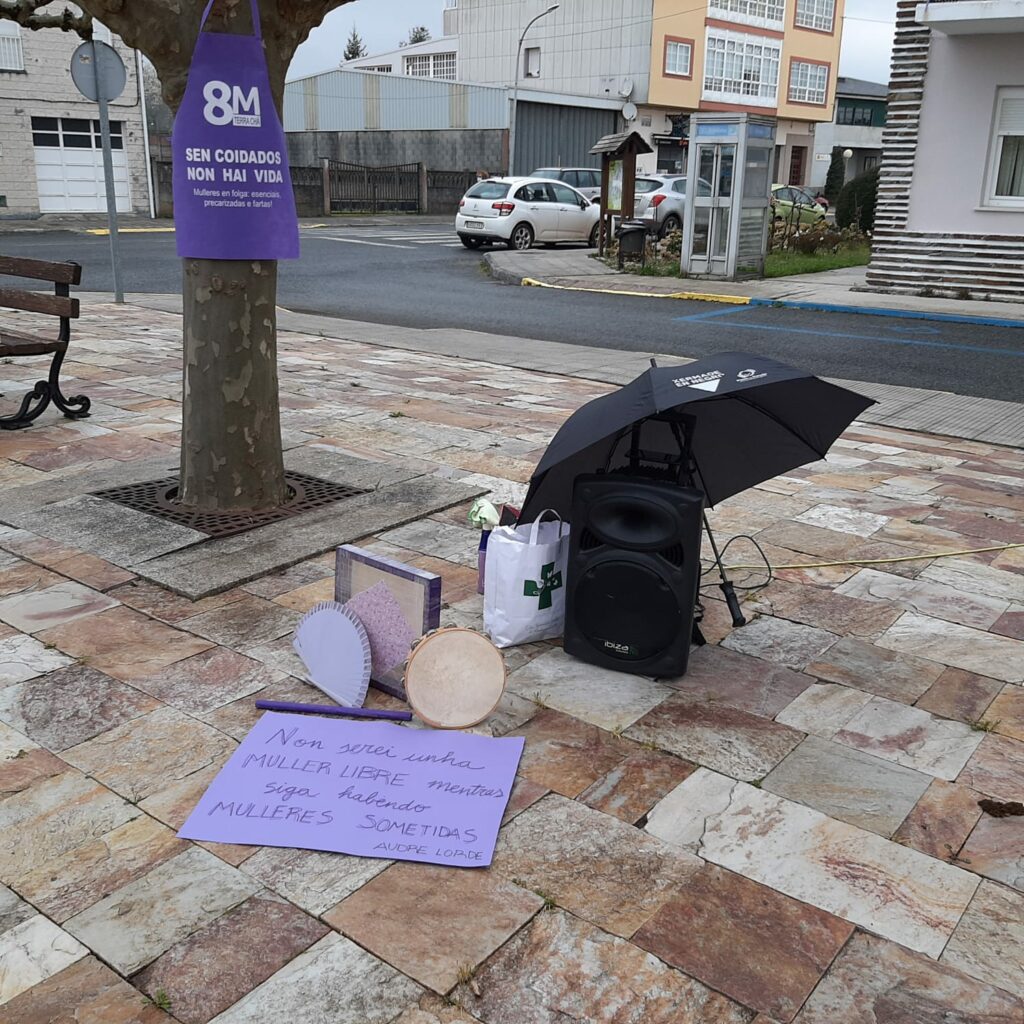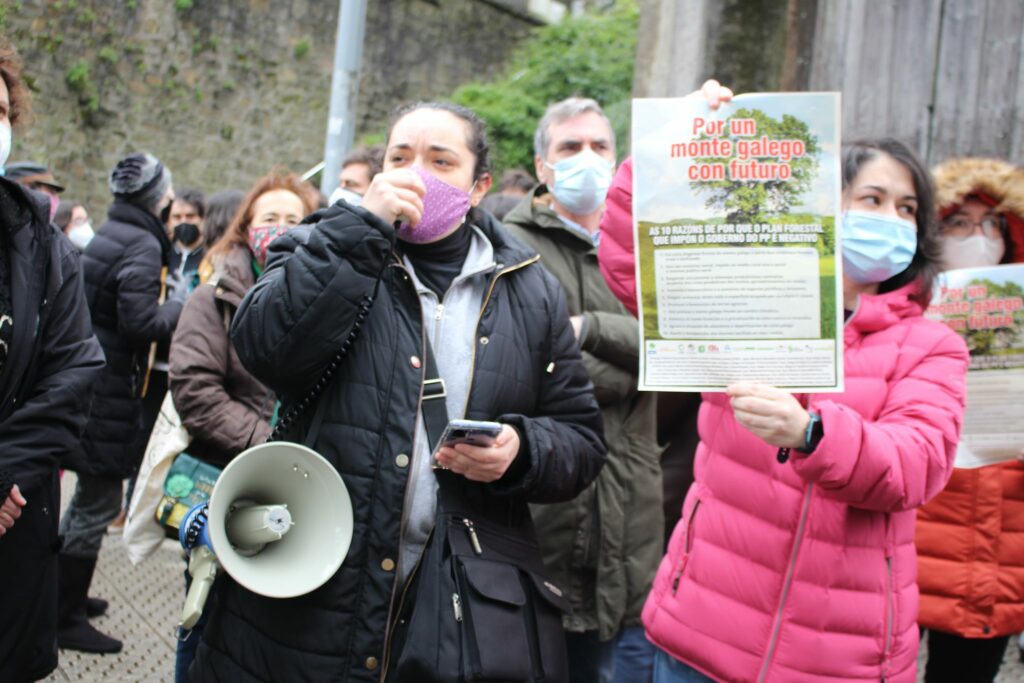Peasant women in Galicia hold strike against inequality in rural farms and neglect in public policies

This March 8, 2021, the peasant members of the Sindicato Labrego Galego, SLG, also supported the feminist strike. One year after the last women’s strike and for peasant women, in terms of equality, the situation continues to deteriorate.

In a press note published on the 8th of March, SLG notes as follows;
We continue to be that invisible factor that sustains the rural world with our work on the farms, with our care for the elderly and children. However, most of us still do not see this contribution recognised when acquiring some type of compensation or right like most workers.

It is outrageous that despite some 35,000 Galician women working on the family farm only about 18 of them are registered as co-owners of the farm.
It is outrageous that, as a direct consequence of this invisibility of the work of the majority of women farmers, only 5% of those who come to contribute achieve a full pension compared to 80% of men.
It is outrageous that in cooperatives, despite women forming 46% of the members, [data from the Galician Association of Agrarian Cooperatives], the presence of women is reduced to 16% in government councils and 6% in the presidencies.

It is outrageous that, at the state level, women cover only 27.5% of direct aid from the Common Agricultural Program (CAP), PAC or 26.35% of aid to rural development.
Furthermore, the amount of CAP support is lower for women than for men. If we analyze the Galician case, the average CAP aid received by men in Galicia is € 9,736, while the average aid for women is reduced to € 4,106. This is because the CAP aid is not designed with a gender perspective and does not foresee that the majority of farms managed by women are normally based on alternative productions, usually smaller in size but perfectly viable, generating wealth and rural employment and quality food production. However, Brussels leaves them out of its public support for agriculture.

It is outrageous to see how essential public services continue to be closed in rural areas, such as schools or medical centers, whose absence always has a negative impact on women’s working hours because we take care of family tasks related to the health of girls and caring for the elderly.
It is outrageous that, instead of improving our health system by strengthening and increasing rural medical centers instead of closing them, the board is pulling a Health Law from its sleeve that all it does is further restrict our fundamental rights and freedoms, quite curtailed by the state of alarm law, and replace care with repression and fear.
It is outrageous to see that, while they close us essential services in rural areas, the Board plans to distribute hundreds of millions of euros of Next Generation Funds among a few friendly companies, without spending a penny in financing solutions to the inequalities that peasant women and women suffer. Not a penny for home care and health services, not a penny to bring education and culture to villages, not a penny to promote shared ownership, not a penny to reduce the pay gap or pensions, not a penny to specifically support the professional work of women farmers, not a penny to help women who experience violence alone in rural areas!
As every year, we must repeat ourselves by saying that there are too many reasons to express our outrage in support of the March 8 strike, that there are too many reasons to demand equality in rural areas and on farms.
Undoubtedly, on International Women’s Day different government administrations and and political parties will make token gestures and pretend to remember us, but tomorrow we will be the great forgotten again. That’s why the strike!
In addition to the March 8 strike, the SLG Secretariat for Women is organising its XVI Annual Meeting this Wednesday, March 10, at Casa da Terra (Antas de Ulla). On this occasion, the meeting will have a reduced capacity regarding the Covid health protocols, one of the topics of debate and analysis will be precisely whether public policies, including the PAC, attend or neglect peasant women.
Source : http://www.sindicatolabrego.com/
